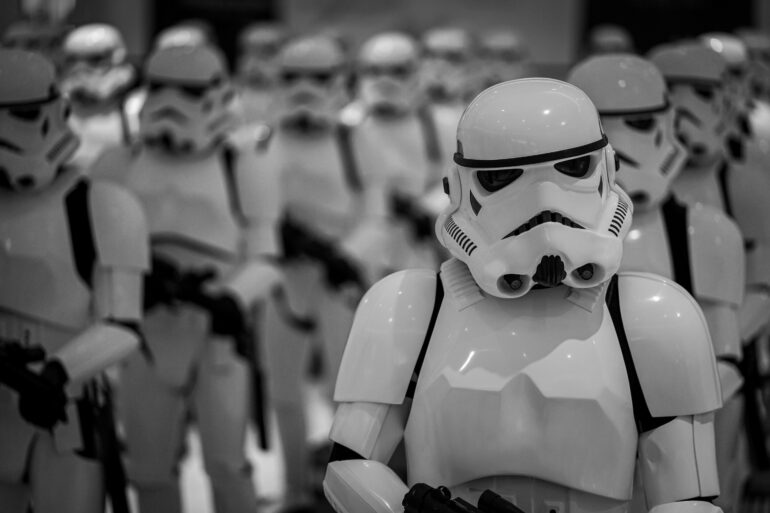These days, “Star Wars” is everywhere. There are numerous films and all kinds of merchandise. But is “Star Wars” also an integral part of the English language? That is the question Prof Dr. Christina Sanchez-Stockhammer, chair of English and Digital Linguistics at Chemnitz University of Technology, set out to investigate. “I wanted to find out whether words from the ‘Star Wars’ universe have already become part of our own universe,” notes the linguist.
In her study “The impact of ‘Star Wars’ on the English language,” she investigated how often the words Jedi, Padawan, Yoda, lightsaber and “to the dark side” occur in digital English text corpora, and with what meaning.
The study, which has been published in the journal Linguistics Vanguard, shows that the word “Jedi,” for example, occurs more than four times per million words in the American COCA corpus. It is thus about as common as the words “jewel” and “dizzy,” which are part of the general vocabulary, and the hits come from very different types of text (e.g., blogs and news).
Sanchez-Stockhammer points out that the context in which the words from the “Star Wars” universe are used is particularly interesting because in more than a third of the cases, there is no direct reference to the films at all—e.g., in “Dickie uses his sexuality as a lightsaber” or “Be one with your external iTunes library, young Padawan.” According to the study, this means that the words from “Star Wars” have reached the highest level of integration into the English language here.
“‘Star Wars” has become such an important part of popular culture that e.g. Yoda’s role as a mentor or the appearance of lightsabers can be assumed to be familiar to large sections of the population and thus form the basis for innovative language uses,” states Sanchez-Stockhammer. Several dictionaries already list vocabulary from “Star Wars,” with the Oxford English Dictionary containing all the words analyzed in the study.
“The example of ‘lightsaber’ shows that ‘Star Wars’ is now even somehow part of our physical reality,” observes Sanchez-Stockhammer and adds, “Most uses of the word refer to tangible toy lightsabers, for example in ‘I have my lightsaber and my sci-fi toys.'”
The influence of “Star Wars” on the English language becomes particularly evident in the construction “to the dark side,” which, combined with verbs like “cross over,” expresses a shift to the dark side of the Force in the franchise. “While light and darkness were already used as metaphors for good and evil before the ‘Star Wars’ films,” says Sanchez-Stockhammer, “none of the earlier sources in the historical COHA corpus employs the construction ‘to the dark side’ in the ‘Star Wars’ sense, i.e., to express a change to a state evaluated as more immoral by the speakers.”
It thus appears that innovative uses like “A developer crosses over to the dark side and learns marketing” are yet another instance where the ‘Star Wars’ franchise has left its mark on the English language.
More information:
Christina Sanchez-Stockhammer, The impact of Star Wars on the English language: Star Wars-derived words and constructions in present-day English corpora, Linguistics Vanguard (2023). DOI: 10.1515/lingvan-2023-0029
Provided by
Chemnitz University of Technology
Citation:
May the ‘Star Wars’ vocabulary be with us (2023, November 27)
